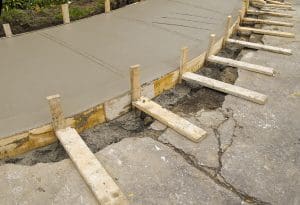When it comes to buying a house, home insurance is usually one of the last things that a buyer thinks about. They are much more concerned with getting their financing in order, arranging movers and deciding on upgrades that insurance falls down the “to do” list.
What most buyers don’t realize is the importance of getting their home insurance and more importantly, making sure that the information you are providing to your insurance provider is accurate. There is a lot of gray area when it comes to insurance and similar to getting insurance for cars, a lot of people will bend the truth on some of the questions in order to save a few dollars on a policy.
While it might not seem like a big deal, lying or falsifying information on your insurance policy can greatly impact your ability to get a claim paid out. This is less common with a principle residence but is extremely common in rental properties and renovation/flip projects.
As I have recently purchased a property to flip, I found out a lot of information which I didn’t know. I was admittedly shocked when I saw the initial quote but then quickly realized how different a home owner policy is compared to a home which is getting renovations.
I was lucky enough to connect with Denis Le Courtois from Sutherland Insurance and he was able to put together a great policy for me on my flip. Unknown to most people, there are insurance brokers and similar to mortgage brokers, they will work to find you the best policy both in terms of price and coverage. I will never get insurance without the help of Denis because he has access to so many different providers and can rest assured I am getting the best policy.
Had I got a regular policy, I would have been very liable for any issue that came up in my project and it would have definitely put me in a position where I was lying on my application. Just the fact that I did not note I was doing renovations would have put me in a very bad situation.
After going through the proccess, I thought it would be great to connect with Denis to have him provide some insight and answer some questions that are extremely beneficial to you when looking to get home insurance on your primary home or a flip.
1. What are the most common things that homeowners don’t know which could void their insurance claims? Withholding information or not telling the truth to your broker and insurance company could have your claim denied and void your policy altogether. Forexampleif you own a rental property and decide to insure it as a regular homeowners to save money on the premium instead of insuring it as a rental property, your policy would be null and void due to material misrepresentation and your claim would likely be denied as well. Rental properties are more expensive to insure as there is more risk involved with tenants residing in the dwelling. Most of the claims with rental properties are due to tenants not being as diligent to housekeeping such as snow-removal or disconnecting the water in the winter when away for an extended period of time. This in turn causes a greater risk of a claim such as a slip & fall or burst pipe in the winter.
2. What happens if you make an insurance claim and it is found out that you lied about that specific thing (for instance, saying you have copper wiring when it’s aluminum? Aluminum wiring and knob & tube is a big red flag for insurance companies. It’s best to know exactly what kind of wiring your house has to avoid your claim being denied or policy cancelled. When you purchase a house ask your realtor and house inspector as many questions as you can think of. The more information you have to give the insurance company 
3. Do insurance companies show any grace when you are making a claim, or do they stick strictly to the policy terms? This depends on the company. Somecompany’sare more lenient than others. You can usually negotiate with the adjuster assigned to your claim, however if you cannot come to an agreement your broker can step in on your behalf to assist.
4. What add-ons would you recommend homeowners get for their insurance policies? Sewer Back-up and Overland Water Coverage. Water is the new Fire and is the number 1 loss in Canada. The aforementioned coverage can be expensive, however it’s well worth having. Water losses can be upwards to $100,000 or more when it comes down to mold remediation, repair, and replacement of contents etc.
5. Why do some insurance companies stay away from insuring flips/renovation projects? It depends on the insurance company’s appetite on what they feel comfortable with insuring. The reason why some of them choose not to insure flips is that they tend to not be profitable and there is a greater risk for a loss. Losses are greater due to security or security systems not being in place during non-working hours, therefore this could invite theft of building materials, arson, and other property damage caused by sewer back-up or burst pipes for example.
6. Why is it important to let an insurance company know if you are doing a major renovation on your home? If you’re doing structural work to your home it changes the terms of your insurance contract, therefore it’s very important to let the insurance 
7. Would a policy be void if you are not using licensed professionals or getting permits for the work you are doing? Not necessarily, however if the structure is compromised by the homeowner undertaking the work on their own, then the policy would not respond. Having a licensed professional who is fully insured is always the best practice for larger jobs.
8. What are the benefits of using an insurance broker? An insurance broker works for the client not the insurance company, therefore if there are any issues during the claim process the broker is there to help you. A broker will also recommend the best coverage that is suitable to your needs.
It goes without saying that when you are buying a home, the type of insurance policy and the coverage you are getting within that policy is very important. If you already own a home and would like to have your policy reviewed and see if you are protected OR if you want to see if there are better rates and coverage options for you, then I would recommend reaching out to Denis to see what he can do for you. I’ve added his information below:


Union Alarm says:
Home insurance has allowed people to be towards the safe side, and this has helped so many of them be covered at time of need. I think if you have a house, then it is really important to get it insured.